Sugar is ubiquitous in America’s food system. It’s found in obvious places like soda pop, candy, and pastries, but over the last few decades it has slowly crept into other seemingly harmless packaged foods, mostly in the form of high fructose corn syrup. Foods you’d never suspect now contain added sugars, including many brands of ketchup, yogurt, and salad dressings.
To a large extent, the infiltration of sugar into the American diet happened in response to the low-fat craze. When fat is removed from foods, taste suffers. To compensate, food manufacturers began adding sugar as a substitute, and the result has been a steady increase in the amount of sugar in foods that formerly contained little or no sugar.
What Is Sugar, Exactly?
While it may sound like a silly question, food manufacturers can be sly about how they slip sugar into packaged foods. There are dozens of names for the different kinds of sugars used in foods, including agave, brown rice syrup, dextrose, and glucose solids. Even those who pay close attention to nutrition labels often find it impossible to identify all the ingredients in packaged foods.
How Employers Can Help Employees Reduce Sugar Consumption
While employers can’t control the behavior of employees, they certainly can avoid contributing to poor choices among employees in the workplace—most effectively through the implementation of an employee wellness program. Vending machines are one of the biggest sources of junk food at work, and even vending machine companies purporting to offer healthy options often stock machines with sugar-laden products like flavored yogurt, fruit flavored snacks, and fruit juices that are not 100% natural juice. Employers may be wise to ditch the vending machines altogether and find more innovative ways of meeting employees’ mid-afternoon cravings.
Education is vital—most of us aren’t aware of how much sugar is added to packaged foods. Employees who are empowered with information and access to healthier options often make better decisions. In our next post we’ll discuss how the brain responds to food cues and why it’s so important to limit exposure to unhealthy foods.






